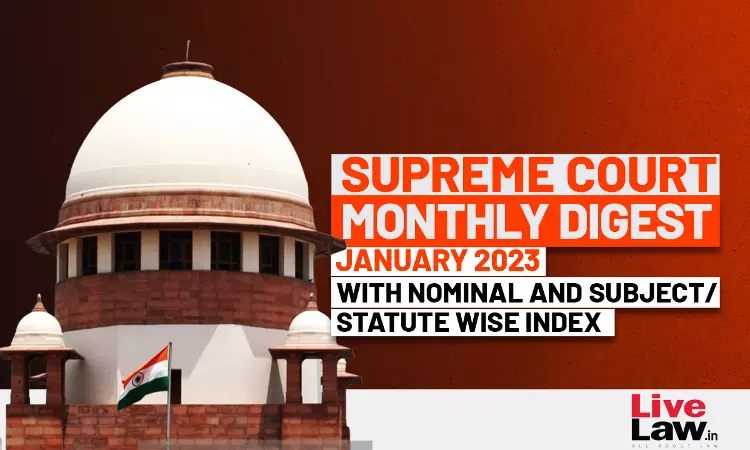- Home
- /
- Top Stories
- /
- Supreme Court Monthly Digest-...
Supreme Court Monthly Digest- January 2023
LIVELAW NEWS NETWORK
3 Feb 2023 8:09 PM IST
Supreme Court Monthly Digest- January 2023 With Nominal And Statute/Subject Wise Index (Citations 1 to 67)SUBJECT WISE INDEXAdministrative LawAdministrative Law – Well established principle of - An adjudicatory body cannot base its decision on any material unless the person against whom it is sought to be utilised has been apprised of it and given an opportunity to respond to it. [Para...
Next Story



